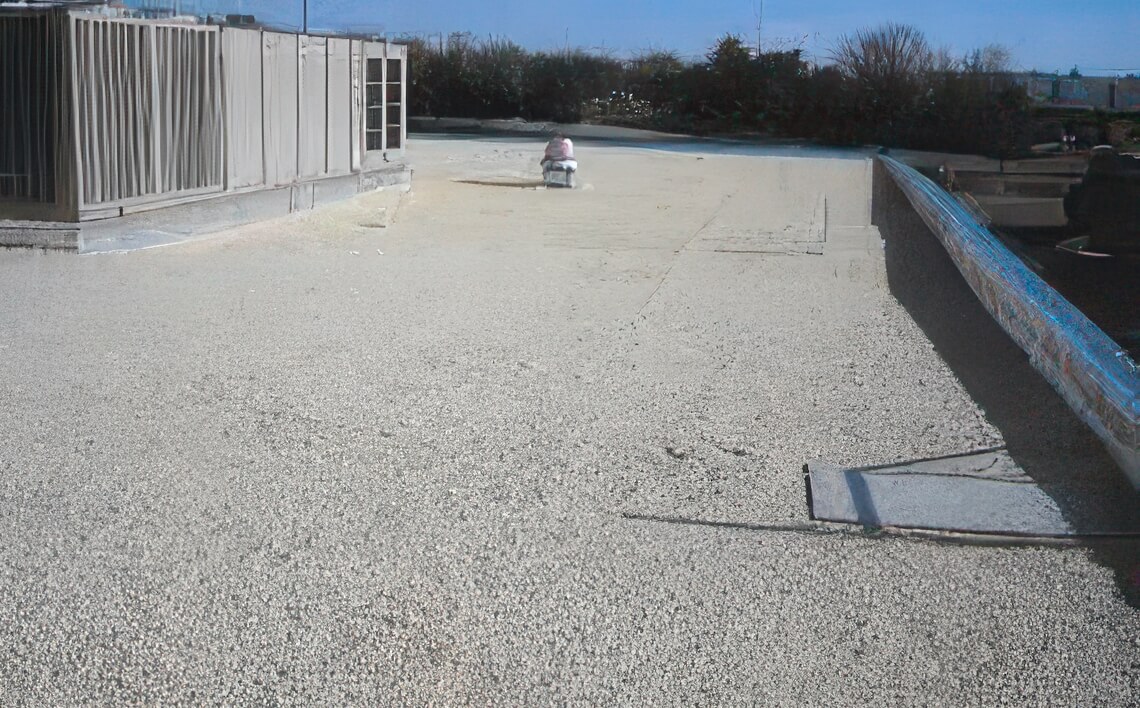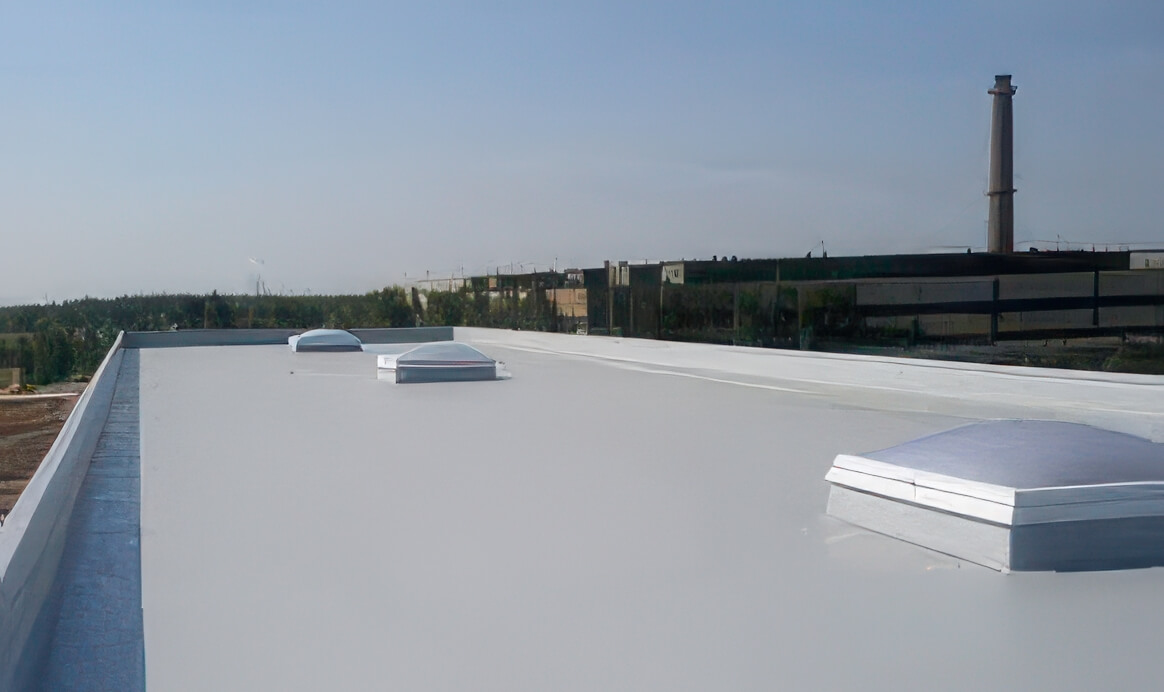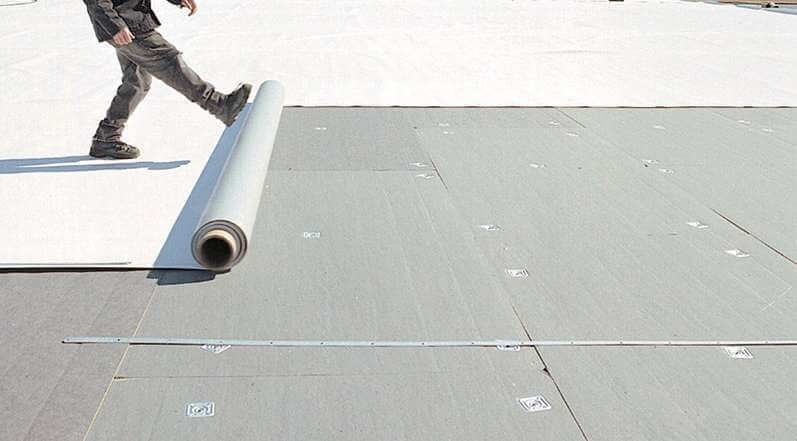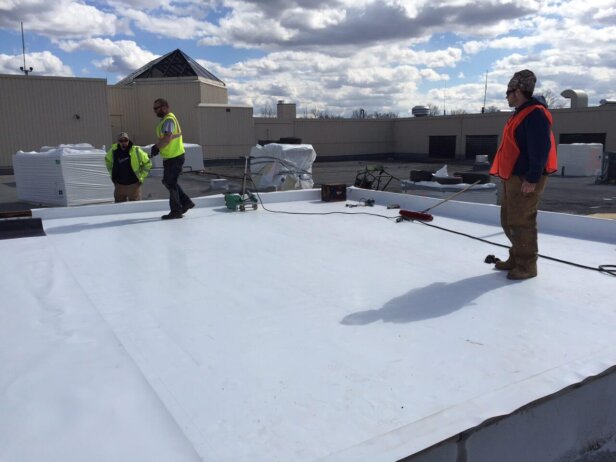Selecting a suitable rubber material for your next improvement task is not easy. The multiple choices out there make the process even harder. Membrane roofing materials are all the craze right now for various reasons. Firstly, they are easier to install, unlike traditional materials. Besides, rubber roofing brings reliable longevity and performance.
Alpha Commercial Roofing discusses how to pick the ideal membrane roofing for your next project in this guide. Before starting the selection process, let’s discuss why membrane roofing is worth considering.
Unparalleled Affordability
Membrane roofing materials stand out from traditional materials thanks to their affordability. Here is a breakdown of each option and its price:
- EPDM – $0.50 to $3.50 per square foot
- Thermoplastic Polyolefin – $1.00 and $2.50 per square foot
- Commercial PVC Roofing – $1.50 to $3.00 per square foot
Ease of Installation
Time is often of the essence in construction projects, and membrane roofing aligns perfectly with this need for efficiency. The straightforward installation process ensures that projects can move swiftly without sacrificing the roofing system’s integrity.
Energy Efficiency
These roofing products stand apart when it comes to energy efficiency. The reflective properties of TPO reduce heat absorption. Also, membrane roofs aid in maintaining lower indoor temperatures by reflecting most of the sun’s rays. This enhances comfort and reduces energy consumption for cooling systems, aligning with environmentally conscious construction practices.

Unmatched Versatility
Rubber roofs are available in various materials. Whether you prioritize energy efficiency or aesthetic appeal, there’s an ideal material just for you.
Excellent Waterproof Integrity
Another standout feature of membrane roofing is its unparalleled waterproofing capabilities. Crafted to form a seamless, impermeable barrier, these roofs keep water at bay. Whether facing heavy rains or standing water, membrane roofing ensures your structure remains dry and protected, safeguarding interior and exterior components from potential damage.
Factors to Consider When Choosing a Membrane Roofing Material For Your Project
Understanding these considerations is pivotal for making an informed decision based on your project’s unique requirements.
Compare Various Membrane Roofing Materials
Membrane roofing options come in different sizes and materials. Each material has something unique to offer. Understanding what each material offers helps you make a more informed decision.
If you would like to bring your energy costs down, TPO is worth considering. Reflective TPO surfaces contribute to energy efficiency, making them ideal for environmentally conscious projects. Also, TPO strikes a balance between performance and affordability.
EPDM roofing is the most suitable material for those seeking a reliable material. EPDM’s exceptional resistance to extreme weather conditions makes it a versatile choice. EPDM’s minimal maintenance requirements also contribute to its popularity in commercial roofing.
Those seeking a highly resistant material for their industrial facility should consider PVC. PVC’s resistance to chemicals and pollutants makes it suitable for industrial settings. The material has fire-retardant properties and enhances safety, making it a prized choice for specific applications.

Consider Durability
Another non-negotiable factor to consider is durability. This is especially vital in areas subjected to heavy foot traffic. Polyvinyl Chloride membranes emerge as the most reliable solution for such high-traffic zones. PVC membranes boast excellent impact resistance, ensuring the roof can endure the weight and pressure of frequent movement. This quality is vital for areas such as commercial establishments, industrial facilities, or public spaces where foot traffic is a constant. PVC provides a protective layer that maintains the roofing system’s integrity, where the roof may be susceptible to abrasion from footfalls or other activities.
Thermoplastic Olefin and PVC stand out for their proven track record when considering long-term performance. Both have demonstrated their ability to endure the test of time in diverse environmental conditions. The two are also known for their minimal maintenance requirements. As such, PVC and TPO are advantageous for property owners and managers looking to ensure the roofing system’s longevity without incurring significant ongoing maintenance costs.
All membrane roofing materials exhibit resilience against environmental stressors, including UV radiation, temperature fluctuations, and moisture. This resistance contributes to their enduring performance, making them reliable choices for roofing systems that must overcome the challenges of changing weather conditions.
Look at the Climate
Atlanta summers are hot, with average temperatures of around 90 to 95 degrees. TPO emerges as the ideal choice because of its heat-reflective properties. It helps in reducing the impact of the sun’s rays on the roofing surface. Also, it aids in maintaining lower indoor temperatures. You won’t need extensive air conditioning after installing this roofing product.
EPDM membranes shine in areas like Atlanta, where rain and high humidity are more prevalent. It’s celebrated for its waterproofing capabilities, forming a seamless and impenetrable barrier that effectively shields the roof from the challenges posed by frequent rain and moisture.
EPDM’s resistance to water makes it a robust choice for climates with consistent precipitation.
Additionally, EPDM exhibits remarkable resistance to UV radiation and extreme weather conditions, ensuring that the roofing material remains resilient against humidity and varying weather patterns.

Think About Ease of Installation
The ease of installation is another critical consideration to look at. TPO and PVC membranes are celebrated for their ease of welding during installation. This characteristic is especially advantageous for large-scale projects, where efficiency in installation is paramount. TPO’s and PVC’s heat-welded seams create a seamless integration, enhancing the overall integrity of the roofing system.
EPDM distinguishes itself with its adhesive application method during installation. This simplicity streamlines the installation process, making it a straightforward option for various project scales. The adhesive application method enhances the ease of handling EPDM membranes during installation. This is particularly beneficial for projects where simplicity and efficiency are priorities.
Let the Membrane Roofing Experts at Alpha Commercial Roofing Help
Alpha Commercial Roofing stands ready to assist you on this journey, offering expertise and personalized solutions to ensure your project’s success. Reach out today, and let’s transform your vision into a reality with the perfect membrane roofing material.
Call us today at 855-862-7663





